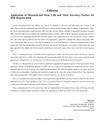3 citations,
December 2023 in “Biomedicines” PRP therapy helps skin heal and improve by promoting cell growth and repair.
 December 2023 in “International Journal of Applied Pharmaceutics”
December 2023 in “International Journal of Applied Pharmaceutics” Moringa seed oil helped hair growth in rabbits, with the highest dose being most effective.
 30 citations,
June 2017 in “Current stem cell research & therapy”
30 citations,
June 2017 in “Current stem cell research & therapy” Adipose-derived stem cells (fat cells) show promise in treating hair loss in both men and women.
52 citations,
September 2017 in “Current Stem Cell Research & Therapy” Adipose-derived stem cells can help treat hair loss.
 1 citations,
February 2022 in “Experimental Dermatology”
1 citations,
February 2022 in “Experimental Dermatology” Certain proteins are found at higher levels in balding areas compared to non-balding areas, suggesting a link to hair loss. This could be useful for diagnosing and treating hair loss.
 2 citations,
September 2022 in “Frontiers in Immunology”
2 citations,
September 2022 in “Frontiers in Immunology” T-regulatory cells are important for skin health and can affect hair growth and reduce skin inflammation.
 February 2024 in “Frontiers in physiology”
February 2024 in “Frontiers in physiology” Hair follicle stem cells help skin heal and grow during stretching.
 188 citations,
March 2018 in “Frontiers in Immunology”
188 citations,
March 2018 in “Frontiers in Immunology” Regulatory T-cells are important for healing and regenerating tissues in various organs by controlling immune responses and aiding stem cells.
 December 2023 in “Frontiers in endocrinology”
December 2023 in “Frontiers in endocrinology” Excess androgens may cause PCOS, not just be a symptom.
 77 citations,
March 2014 in “Cold Spring Harbor Perspectives in Medicine”
77 citations,
March 2014 in “Cold Spring Harbor Perspectives in Medicine” Fat cells are important for healthy skin, hair growth, and healing, and changes in these cells can affect skin conditions and aging.
1 citations,
December 2023 in “Life” PRP helps skin heal, possibly through special cells called telocytes.
 August 2024 in “Journal of Cosmetic Dermatology”
August 2024 in “Journal of Cosmetic Dermatology” CGF injections may safely and effectively promote hair growth in androgenetic alopecia patients.
 1 citations,
January 2022 in “Faculty reviews”
1 citations,
January 2022 in “Faculty reviews” The best long-lasting results in treating hair loss may be achieved through combination therapy, including treatments like finasteride, minoxidil, and platelet-rich plasma injections.
 1 citations,
March 2018 in “Hair transplant forum international”
1 citations,
March 2018 in “Hair transplant forum international” Using one's own fat may help treat hair loss.
 30 citations,
July 2017 in “Stem cells and cloning”
30 citations,
July 2017 in “Stem cells and cloning” SVF-enhanced adipose transplantation shows potential as a hair loss treatment.
 4 citations,
January 2018 in “International Journal of Immunopathology and Pharmacology”
4 citations,
January 2018 in “International Journal of Immunopathology and Pharmacology” Fat tissue transplant may be an effective new treatment for severe, treatment-resistant hair loss from folliculitis decalvans.
 June 2024 in “Al- Anbar Medical Journal”
June 2024 in “Al- Anbar Medical Journal” Acute telogen effluvium can be resolved by addressing causes, but chronic telogen effluvium is harder to treat.
 January 2024 in “Journal of Cosmetics, Dermatological Sciences and Applications”
January 2024 in “Journal of Cosmetics, Dermatological Sciences and Applications” Injecting a peptide-hyaluronic acid mix improved hair growth in men with hair loss and was safe.
 4 citations,
September 2020 in “PeerJ”
4 citations,
September 2020 in “PeerJ” Platelet factor 4 slows down hair growth and could make hair loss treatments more effective if removed.
 12 citations,
October 2021 in “Cells”
12 citations,
October 2021 in “Cells” Targeting a protein that blocks hair growth with microRNAs could lead to new hair loss treatments, but more research is needed.
 July 2022 in “Plastic surgery and modern techniques”
July 2022 in “Plastic surgery and modern techniques” Using stem cell-enriched fat injections before hair transplant surgery can result in less hair loss and thicker hair.

Treatments for hair loss vary, but cell-based options may be the future.
 6 citations,
June 2018 in “Journal of Stomatology, Oral and Maxillofacial Surgery”
6 citations,
June 2018 in “Journal of Stomatology, Oral and Maxillofacial Surgery” Nanofat grafting is better for delicate areas and combining it with lipofilling might improve hair loss treatment.
 March 2021 in “Uludağ Üniversitesi Tıp Fakültesi dergisi”
March 2021 in “Uludağ Üniversitesi Tıp Fakültesi dergisi” The review provided information on various treatments to stop hair thinning and increase hair density in people with common genetic hair loss.
 September 2017 in “Current stem cell research & therapy”
September 2017 in “Current stem cell research & therapy” Mesenchymal stem cells from fat tissue may effectively treat hair loss and help regrow hair.
 33 citations,
January 2018 in “The International Journal of Developmental Biology”
33 citations,
January 2018 in “The International Journal of Developmental Biology” Cell aging can be both good and bad for tissue repair.
 212 citations,
September 2015 in “Journal of Investigative Dermatology”
212 citations,
September 2015 in “Journal of Investigative Dermatology” The document provides a method to classify human hair growth stages using a model with human scalp on mice, aiming to standardize hair research.
 11 citations,
July 2017 in “Expert Opinion on Investigational Drugs”
11 citations,
July 2017 in “Expert Opinion on Investigational Drugs” New hair loss treatments may include topical medications, injections, and improved transplant methods.
 2 citations,
October 2022 in “Skin appendage disorders”
2 citations,
October 2022 in “Skin appendage disorders” Activated and non-activated PRP are equally safe and effective for treating alopecia areata.
 3 citations,
May 2023 in “Biomedicines”
3 citations,
May 2023 in “Biomedicines” PCOS causes infertility mainly due to hormonal imbalances, insulin resistance, and chronic inflammation.


























